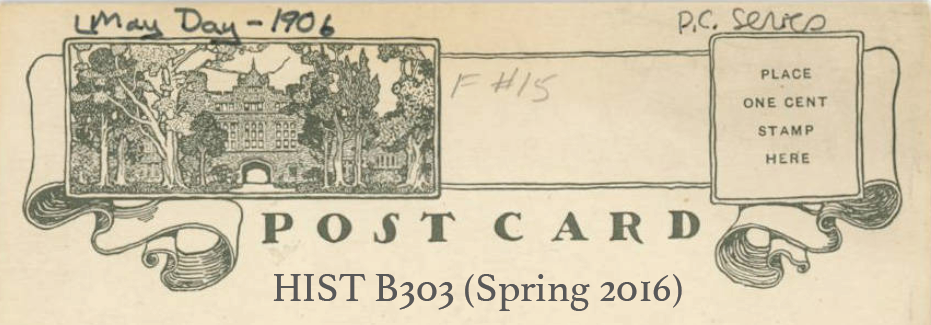In her article for Slate on the issues surrounding Twitter’s “history pic” accounts, Rebecca Onion argues that their lack of provided context and narrow choice of subject matter reflect “a dim, condescending view of the public’s appetite for complexity and breadth of interest.” While I am not on Twitter and had not heard of these particular accounts, I was immediately drawn to this quote, as it describes how I have often felt concerning recent historical documentaries.
I watch (or rather, used to watch) documentaries frequently, and have noticed over the past couple of years that much of their content seems to have been watered down. Very little detail is given on the history itself, with much of the air time spent repeating the same questions over and over (Why did these people build this? How on earth did they do it without modern technology?), rather than actually trying to answer these questions. There are exceptions to this rule, of course. One documentary I saw became noticeably less vague when it came time to discuss eunuchs and concubines. After sitting through an unpleasantly in-depth description of the castration process, I couldn’t help but feel like the program highlighted only what the public would find shocking, rather than present a well-rounded, informative survey of the subject at hand. Aside from where these topics were concerned, the actual facts contained in the hour-and-a-half-long program could be condensed into about 15 minutes. But as Onion points out, this lack of insightful content “seems designed to provoke a feeling of familiarity: an ‘I know what this is!’ rather than an ‘I wonder what this is about?’” Rather than teach viewers about how complex past societies could be, such documentaries seem to do the very opposite. By spending half of their time slot marveling at monuments instead of conveying real information about them, they enforce an already widespread stereotype – namely, that it is unusual and strange that “primitive” people of the past were able to build such monuments. Such shows may be entertaining, but when they are broadcast on channels that purport to take history seriously, they become an insult to viewers’ intelligence.
Adding more substance to history-based forms of entertainment, whether these be documentaries or tweets, would far from “take the fun out” of them. On the contrary, it would help viewers to discover how fun it can be to learn about real history.
